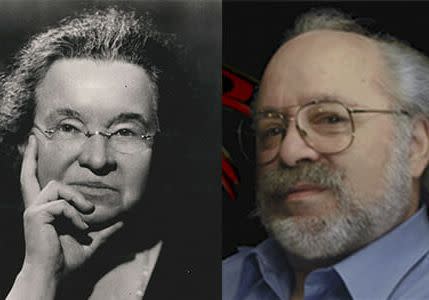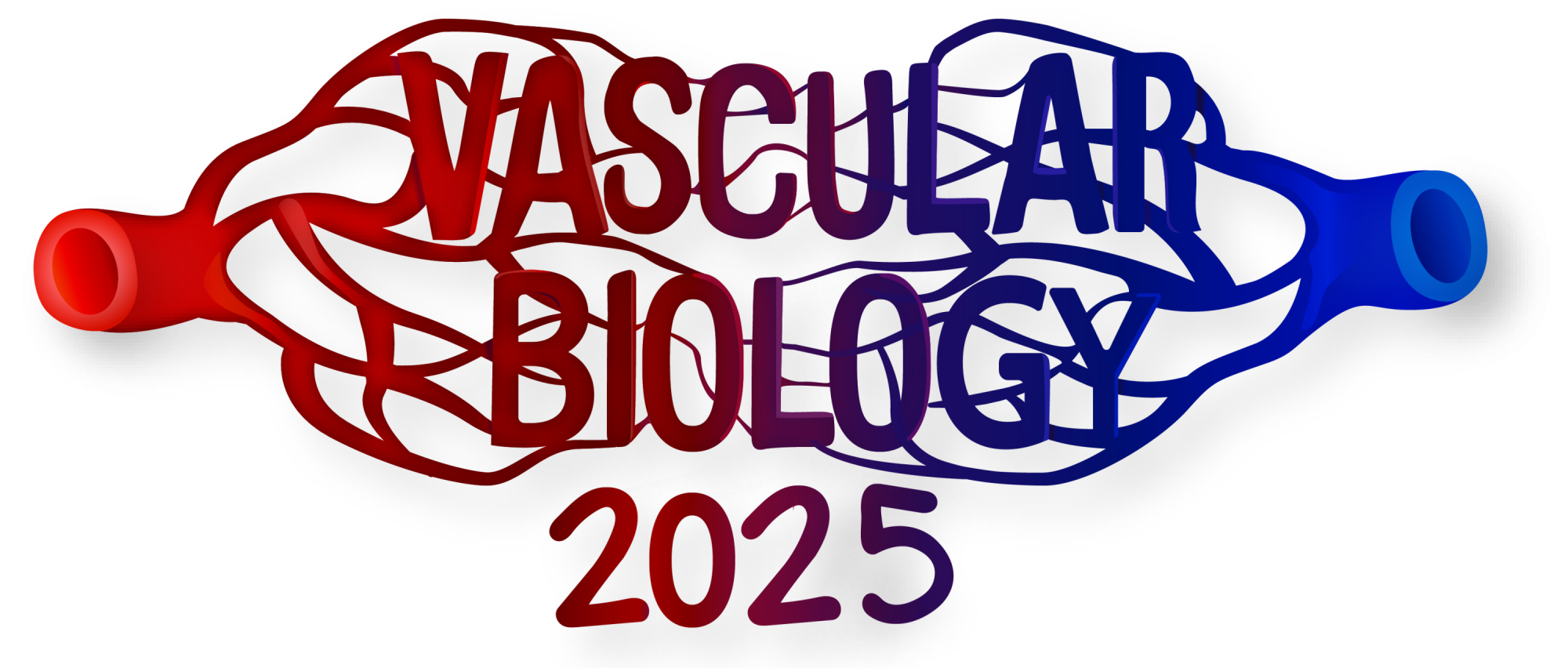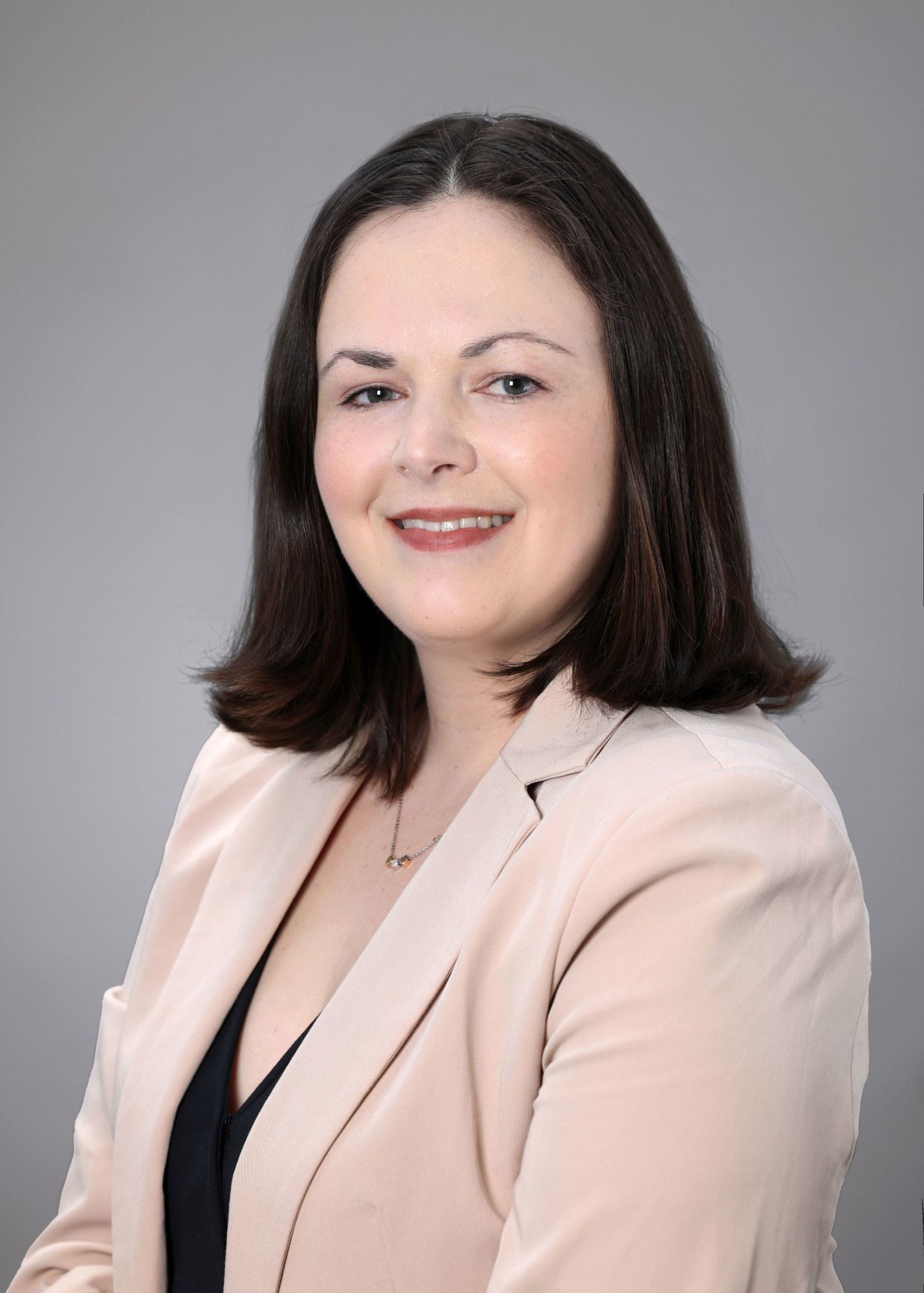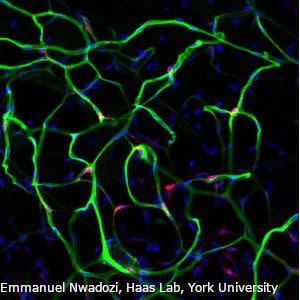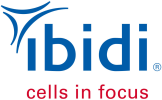|
View this Newsletter Online Visit the NAVBO Website |
|
|
|
|
March 2025 |
|
President's Message |
|
Current challenges to vascular biology research: I am writing to the NAVBO community today to offer my heartfelt support in these very challenging times for the vascular biology community. There has never been a darker time for biomedical research during my career. There are multiple threats to funding the important research that we all do, and many unjustified cuts have already occurred. Even more upsetting is the lack of support (and even open hostility and terminations) of the researchers that do this vital research. It is in these unprecedented times that community becomes even more important. We will weather this storm if we support each other and continue to advocate for vascular biology research. If you live in the U.S., please reach out to your congressperson and senators and let them know that you are against the recent executive actions that endanger scientific research and medicine. NAVBO will continue to advocate in any way that it can. Please also check in with colleagues and trainees. Many are not okay.
Best regards, Jason Fish, PhD President, NAVBO
Contact information for US Senators Contact information for US Congress Members More tools for Advocacy from Research!America |
|
Call for Nominations |
|
|
We are seeking nominations from the membership for the 2025 Stephen Schwartz and Florence Sabin Awards, which will be presented at Vascular Biology 2025 in October. Nominations are due March 17, 2025. |
|
Seeking VB2026 Pre-conference Meeting Organizers |
|
For Trainee Members Only Are you interested in organizing the Pre-Conference Meeting for Trainees at Vascular Biology 2026? NAVBO has been holding this trainee-led session since 2015 and the program and has often included a featured speaker, panel discussion, career development and/or a social time with refreshments but most importantly, presentations of several abstracts authored by postdocs and graduate students (these authors will be presenting posters during the main portion of the meeting).
If you are interested in organizing the 2026 four-hour session for trainees that will kick off Vascular Biology 2026 (NAVBO’s Annual Meeting), please complete the online form by March 17.
The meeting will be held at the Asilomar Conference Grounds in Pacific Grove, CA from October 18 - 22, 2026.
The meeting organizers will review the applications and select the trainee organizers. Applications are due March 17, 2025 |
|
NAVBO Conferences in 2025 |
|
|
|
Abstracts due March 17 |
|
|
|
Registration now open for Vasculata and Vascular Biology 2025!!! |
|
July 7-10, 2025 at the |
|
|
|
|
|
Save $$$ - register by 6/30 for Vascular Biology to get the Super Early Bird Discount! |
|
Lessons Learned |
|
|
Terren K. Niethamer, Ph.D.
My name is Terren Niethamer, and I am a Stadtman Tenure-Track Investigator at the National Cancer Institute (NCI), National Institutes of Health (NIH)*. I started my independent position at NCI almost exactly a year ago in January 2024. My lab is called the Regenerative Plasticity and Signaling Section and is part of the Cancer and Developmental Biology Laboratory (CDBL). CDBL is a department, but here at NCI, they like to confuse us by calling the lab a “Section” and the department a “Laboratory.” As a federal employee, it is worth noting that the views in this letter are my own and not those of the United States government. |
|
Throughout my career as a scientist-in-training, I have been fascinated by the relationship between structure and function. After a brief experience with organic synthesis as an undergraduate and a postbaccalaureate fellowship in human genetics at the National Human Genome Research Institute, I received my Ph.D. in Biomedical Sciences from the University of California, San Francisco. There, I studied how signaling drives cell self-organization and tissue morphogenesis in craniofacial development in the lab of Dr. Jeffrey Bush. I trained as a postdoctoral fellow in the lab of Dr. Edward Morrisey, where I studied the role of endothelial cell heterogeneity in lung regeneration. My current research builds on these experiences to investigate the role of endothelial cell signaling in development and regeneration of the lung alveolus, the functional unit of gas exchange.
|
|
Did You Know...? |
|
You can search for fellow NAVBO members by name, location, research interests, etc. in the Member Directory located in the Member Portal? |
|
|
|
Members Only - Log into the Member Portal to access the Directory. Update your information/profile under "My Info" |
|
Spotlight on Trainees |
|
Graduate students engaged in university governance A number of leading research universities, including Princeton and Cornell, have formally included graduate students as members of institutional Councils or Committees that govern grad ed affairs. For example, Princeton faculty voted last year to add graduate student representatives to each of the four subcommittees responsible for making recommendations on academic policies, curriculum, fellowships, and student life and discipline. History professor Beth Lew-Williams, member of the Policy Subcommittee, noted that student engagement is “…an opportunity for faculty to learn from graduate students’ perspectives and for graduate students to share in the responsibility of governing the Graduate School.” Do such opportunities exist at your institution? |
|
Member News |
|
Welcome to our New Members: Claire Aitken, University of Oxford Gabrielle Brown, Johns Hopkins All Children's Hospital Susann Bruche, University of Oxford Lu Chen, University of California at Berkeley Tharanga Don, University of Auckland Wa Du, University of Cincinnati Yao Du, Universite Libre Bruxelles Shi Fang, Brigham and Women's Hospital/HMS Xin Geng, Oklahoma Medical Research Foundation Mark Gillrie, University of Calgary Rashad Hussain, University of Rochester John Hwang, UCSF Pediatric Critical Care Medicine Paula Josic Dominovic, Oregon Health & Science University Esther Koh, MIT/Harvard Medical School Maya Levitan, Georgia Institute of Technology and Emory University N. Keilany Lightsey, University of Notre Dame Robert McCarthy, Medical College of Wisconsin and Marquette University Charles McDaniel, University of Cincinnati Pauline Pan, Yale University School of Medicine Kar Lai Pang, University of Oxford Gal Perlmoter, Weizmann Institute of Science (WIS) Hannah Polejewski, South Dakota State University Sanjoy Saha, University of Notre Dame Keri Schadler, The University of Texas M. D. Anderson Cancer Center Alec Stepanian, Tufts Medical Center Tahrima Arman Tusty, OMRF/University of Oklahoma Health Sciences Center Maria Virumbrales Munoz, University of Wisconsin, Madison Meng-Ying Wu, King's College London Feiran Zhang, University of Oxford |
|
Recent Member Publications |
|
The C2 domain augments Ras GTPase-activating protein catalytic activity PNAS Regulation of Ras GTPases by GTPase-activating proteins (GAPs) is essential for their normal signaling. Nine of the ten GAPs for Ras contain a C2 domain immediately proximal to their canonical GAP domain, and in RasGAP (p120GAP, p120RasGAP; RASA1) mutation of this domain is associated with vascular malformations in humans. Read More
Transport and Immune Functions of the Lymphatic System Annual Review of Physiology Two major functions of the lymphatic system are the reabsorption of excess interstitial fluid/protein and the coordination of immune cell interactions and trafficking. Specialized junctions between lymphatic endothelial cells optimize reabsorption. The spontaneous contractions of collecting vessels provide active lymph propulsion. Read More
Specialized pericyte subtypes in the pulmonary capillaries The EMBO Journal Pericytes are essential for capillary stability and homeostasis, with impaired pericyte function linked to diseases like pulmonary arterial hypertension. Investigating pericyte biology has been challenging due to the lack of specific markers, making it difficult to distinguish pericytes from other stromal cells. Read More
Using mathematical modelling and AI to improve delivery and efficacy of therapies in cancer Nature Reviews Cancer Mathematical modelling has proven to be a valuable tool in predicting the delivery and efficacy of molecular, antibody-based, nano and cellular therapy in solid tumours. Mathematical models based on our understanding of the biological processes at subcellular, cellular and tissue level are known as mechanistic models that, in turn, are divided into continuous and discrete models. Read More
If you recently published a paper and would like to have it included in a future issue of the NAVBO NewsBEAT and/or on our web site. Please send the citation to membership@navbo.org |
|
Industry News |
|
National Academies leader shares thoughts on the future of US research Recent steps taken by the federal government have shaken agencies that fund science in the US. NAS President Marcia McNutt notes that threats to future science funding flies in the face of data indicating that jobs in science, technology, engineering, and medicine are growing faster than jobs in any other sector, and that industry is counting on universities to train that workforce for tomorrow. “I’m concerned that with the cuts in science budgets and the federal workforce, we will not see the same number of students being trained. And we are not going to see the same level of top young researchers coming to America from other countries for their education and for their jobs.”
Progress in fathoming “Long COVID” Five years since the emergence of SARS-CoV2, researchers are starting to understand how infection by this can bring about long-lasting health consequences. Some of these effects, such as chronic fatigue and brain fog, are considered long Covid, defined as symptoms from an infection. An estimated 400 million people worldwide have been diagnosed with some form of long Covid, as defined by more generic post-infection symptoms (fatigue, cognitive impairment) lasting at least three months. More serious issues, including respiratory and cardiovascular damage, may escape detection as long Covid but still lead to chronic health impairment.
Update on NIH’s “Simpler Grants” initiative The NIH Office of Grants' modernization effort, Simpler.Grants.gov, has released a new search feature to connect users with suitable grant opportunities. Simpler.grants and the Council on Federal Financial Assistance hosted a demo session on January 15. A recording of this event, showcasing the new search feature, updates to the opportunity listing page, and a peek at upcoming additions, can be viewed online. |
|
Survey Conference Expectations |
|
A thorough understanding of attendees and their specific needs is crucial for designing conferences that are both relevant and effective. Thus, in summer 2024, an independent survey on researchers’ perceptions of and expectations towards scientific conferences was conducted. The survey was distributed to the NAVBO community through the newsletter, and you might have participated in it.
Survey participants considered scientific conferences useful and important. In particular, participants expected to explore research objectives and network at their next planned conference. Participants’ expectations of what to gain at their next planned conference largely did not differ between conference formats. The only exception were participants’ networking expectations, as virtual participants had lower expectations to network than in-person participants. See the full results here. |
|
Call for Papers |
|
|
Immunity, Atherosclerosis and Cardiovascular Disease: An Interdisciplinary Approach to Cardiometabolic Health Editors: Masanori Aikawa, Jürgen Bernhagen, Gabrielle Fredman, Carlos Labarrere, and Holger Winkels NAVBO is sponsoring this Research Topic through our partnership with Frontiers In Cardiovascular Medicine.
Led by an interdisciplinary team of topic experts, this Research Topic will delve into the role of inflammation as a key mechanism in atherosclerotic vascular diseases. A specific focus is placed on how various inflammatory mediators contribute to atherosclerotic lesion formation, propagation, and plaque instability. Specific areas of interest are listed on the web page. https://www.frontiersin.org/research-topics/65457/immunity-atherosclerosis-and-cardiovascular-disease-an-interdisciplinary-approach-to-cardiometabolic-health |
|
|
|
|
The collection focuses on phenotypic transitioning of vascular and immune cells, such as endothelial-to-mesenchymal transitions with specific emphasis on the role of immune and inflammatory responses in vascular remodeling, genetic and epigenetic factors, environmental and lifestyle factors, personalized medicine approaches and the interplay between biomechanical forces and endothelial health in vascular remodeling. Editors: Drs. Laena Pernomian (University of South Carolina) and Vanessa de Fátima Borges (Cedars Sinai Medical Center, Los Angeles). Submission deadline: March 12, 2025. |
|
|
|
cThe collection examines the interplay between perivascular adipose tissue (PVAT) and vascular endothelium, particularly in the context of energy imbalance, PVAT's secretome and mechanical properties. The potential of PVAT as a therapeutic target and/or a source of diagnostic biomarkers for cardiovascular diseases are also of particular interest. Editors: Drs. Eduardo Nava (University of Castilla-La Mancha, Ciudad Real, Spain), Maria Andreia Delbin (State University of Campinas, Campinas, Brazil), Ning Xia (Johannes Gutenberg University Mainz, Mainz, Germany) and Stephanie Watts (Michigan State University, East Lansing, USA). Submission deadline: May 30, 2025. https://www.frontiersin.org/research-topics/65161 |
|
|
|
|
|
BMC Biology is calling for submissions to theirr Collection on vasculogenesis and angiogenesis in vivo and in vitro. This Collection aims to bring together cutting-edge research that explores the cell and molecular mechanisms and therapeutic applications of blood vessel formation in health and disease. Tara Haas, York University, is one of the guest editors. Deadline for submission is August 22, 2025. Download the flyer for more information.
|
|
NAVBO Corporate Partners |
|
NAVBO Corporate Members |
|
Calendar of Events |
|
|
Job Postings |
|
|
|
|
North American Vascular Biology Organization |


